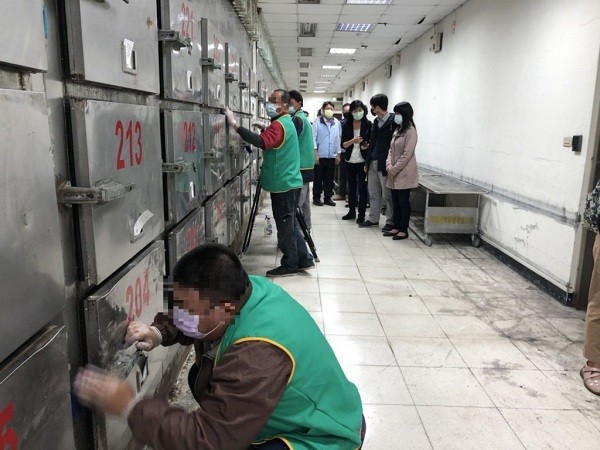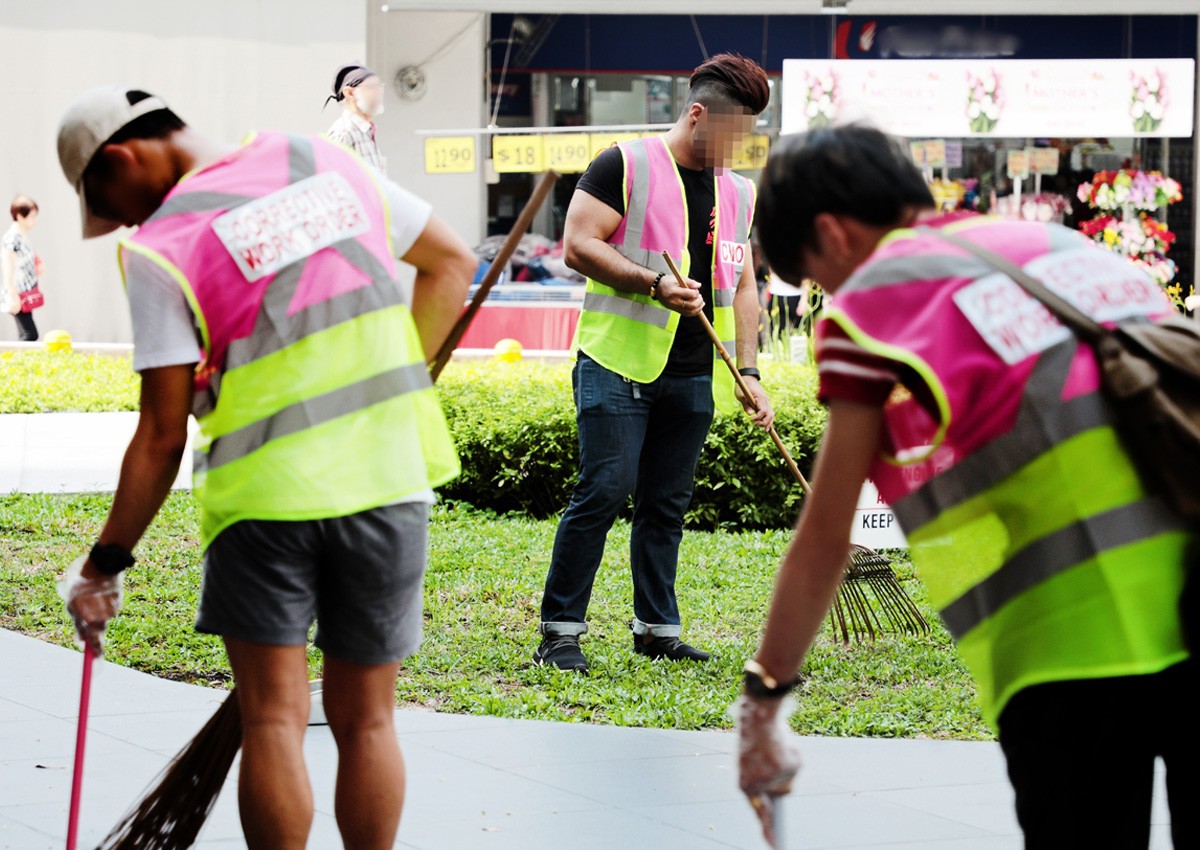Deputy prime minister Tran Hong Ha recently requested the Ministry of Public Security to explore community service as a penalty for traffic violations in the draft amendment to the Law on Administrative Sanctions. This aims to provide an alternative to traditional fines. In fact, many countries worldwide have implemented community service for years, each with unique approaches.
Thailand, Taiwan, Kenya: drunk drivers clean morgues
In several countries, drunk drivers are required to perform community service in morgues as a deterrent. In Thailand, since 2016, offenders may have to clean beds, move bodies, tidy up, and even stand near the bodies of traffic accident victims to experience the direct consequences of drunk driving.
 |
Traffic offenders cleaning a morgue in Kaohsiung, Taiwan. Photo: Taiwannews |
Traffic offenders cleaning a morgue in Kaohsiung, Taiwan. Photo: Taiwannews
In Taiwan, many areas like Taitung, Kaohsiung, and Taipei have implemented a similar system where drivers clean morgues, embalming rooms, or crematoriums. While they may not have direct contact with the bodies, the experience is still impactful. Offenders then undergo psychological counseling and community education. In Kenya, Nairobi proposed requiring drunk drivers to clean or do administrative work in district morgues, aiming to raise awareness and reduce alcohol-related accidents.
Community service in morgues is considered by experts to have a more substantial impact than fines or license suspensions. Direct exposure to the environment of loss and experiencing the presence of death helps offenders confront the potential consequences of their actions. Many drivers who underwent this type of community service reported feeling "haunted" and "scared," pledging not to repeat their offense.
United States: converting fines into community service hours
In some US states, minor traffic violations like low-level speeding or illegal parking can be converted into community service. For instance, in Baton Rouge, Louisiana, first-time drunk driving offenders may face 32 hours of community service, which can increase to 240 hours for repeat offenses. Notably, some areas allow fines to be "converted" into community service hours based on minimum wage.
Typically, after a court sentences an individual to community service, they receive an official decision outlining the required hours, the deadline, and the designated location. This could be a park, school, public hospital, community food bank, or homeless shelter.
Common community service tasks include cleaning up trash, repainting fences, removing graffiti, organizing documents in hospitals or schools, distributing food to the needy, and handing out traffic safety flyers.
Offenders then contact the Community Service Office or Probation Office to register. They are assigned specific tasks and must attend according to the schedule. During their service, a supervisor or community officer monitors and records their hours.
After each work session, offenders sign a timesheet, which is also signed by the supervisor. Upon completing the required hours, the complete record is submitted to the court or probation office for review. If the offender completes the service on time, the court acknowledges it as fulfillment of the sentence. Failure to complete the service (e.g., missed sessions, insufficient hours, or lack of timekeeping) may result in additional penalties, increased service hours, or even imprisonment.
Singapore: wearing reflective vests while cleaning up litter
While Singapore hasn't implemented community service for traffic violations, it applies a similar approach to other offenses. Specifically, those who litter or violate public order may be subject to a "Corrective Work Order" (CWO).
 |
Litterers in Singapore must wear reflective vests during community service. Photo: AsianOne |
Litterers in Singapore must wear reflective vests during community service. Photo: AsianOne
This penalty lasts 3-12 hours, up to three hours per day, depending on the severity and number of repeat offenses. Offenders are informed in advance of the location and time, and must wear brightly colored reflective vests while cleaning public areas. Non-compliance or violations (lateness, failure to notify if unwell, or hiring someone else) can result in a fine of up to 5,000 SGD (approximately 100 million Vietnamese dong) or two months imprisonment, in addition to completing the CWO. The government considers this approach both a deterrent and a clear message to the community.
Community service is highly regarded for its educational and deterrent value, as offenders not only face financial losses but also directly experience community service work. This approach is also humane, reducing the financial burden on low-income individuals while providing additional human resources for social work. However, implementing community service is not straightforward. Common challenges include the need for sufficient supervisory personnel and clear legal procedures.
Ho Tan










